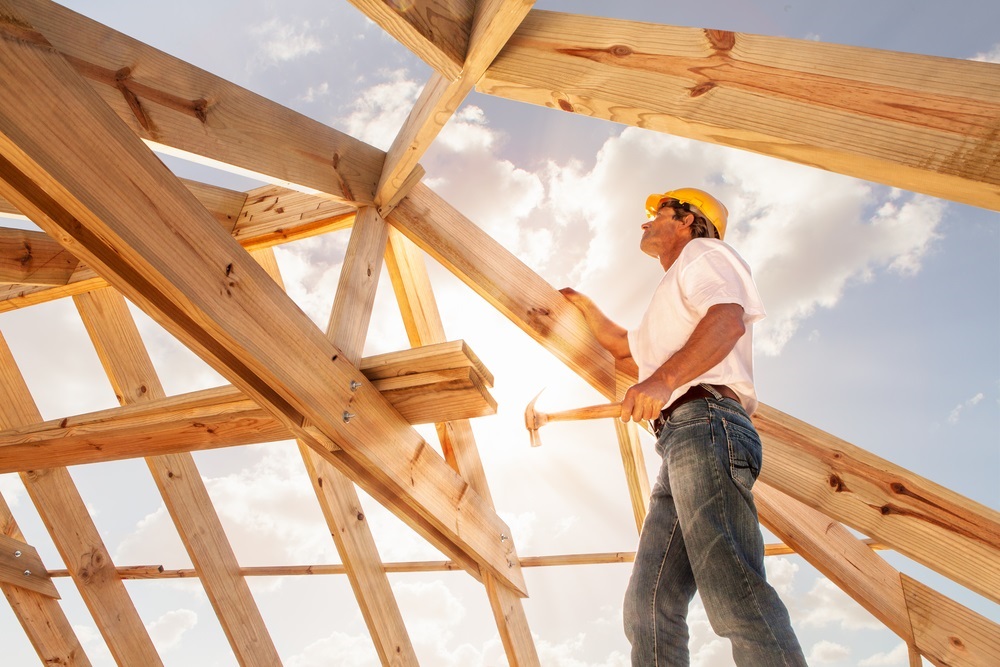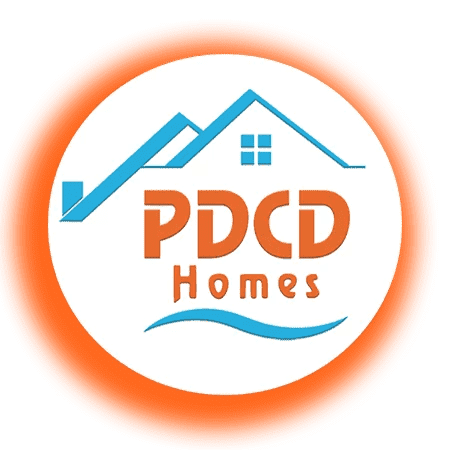Benefits of Building vs Buying Home | What’s Best?

Well Well Well…
Deciding whether to buy or build a house is a very-very tricky and hectic decision. Each option comes with its own set of advantages and factors to consider. Choosing to purchase an existing home provides the benefit of immediate occupancy and the comfort of a familiar environment. Buyers can explore established neighborhoods, negotiate prices, and have a clear understanding of upfront expenses.
On the flip side, constructing a home offers a unique chance for personalization, allowing individuals to create their ideal home from the ground up. While this approach allows control over features, layouts, and modern technologies, it comes with a longer timeline, higher initial costs, and the potential for construction-related challenges.
What are the Pros & Cons of Building vs Buying Home
The distinct characteristics of buying vs building homes highlight the importance of aligning personal preferences, financial considerations, and lifestyle needs with the chosen path in the pursuit of the perfect home.
Keep reading to understand the science of buying vs building home…
What are the Pros and Cons of Building a House?
Pros of Building a House
Control
Building your home provides significant control over the design, allowing you to create a space that aligns closely with your preferences, within regulatory and budget constraints.
Preferences
You have the flexibility to select the floor plan, fixtures, and allocate your budget based on your preferences, customizing the home to meet your specific needs and desires. Constructing a new home allows for the integration of energy-efficient features, potentially resulting in lasting cost savings on energy expenses.
Reduced Stamp Duty
In the process of building a house, stamp duty is typically calculated solely on the land value, potentially resulting in substantial savings compared to purchasing an existing home.
Government Grants
Individuals embarking on their first home construction project can take advantage of grants such as the First Home Owner Grant (FHOG), leading to noteworthy savings throughout the building process.
Ongoing Costs
New properties often come with a builder’s guarantee, reducing the immediate need for extensive maintenance. They are also likely to be built to higher energy-efficient standards, resulting in lower ongoing running costs.
Cons of Building a House
The construction industry can be subject to uncertainties such as market fluctuations, material shortages, or labor issues, which may affect the building process.
Time Span
Building a house involves a lengthy process, and the construction timeline can extend over several months or even years. Construction loans come with specific terms and conditions, and the process can be more complex than obtaining a traditional mortgage, potentially leading to constraints.
Delays
Construction projects may face delays due to various factors, extending the time required for your new home to be ready.
Unwanted Expenses
Changes, additions, or unforeseen issues like difficult soil quality or a sloped land can lead to unexpected costs.
Involvement
Building requires more active involvement from you throughout the construction process, demanding time and attention to various decisions.
Financial Considerations
Buying land for construction may involve specific considerations for loan approval, and maintaining a buffer in the budget is essential for unforeseen issues.
What are the Pros and Cons of Buying a House?
Pros of Buying a House
Landscaping
Established homes come with mature landscaping, avoiding the need to build a garden from scratch. Saves both cost and time compared to landscaping a new estate.
Openness
When buying an established home, what you see is generally what you get. Building and pest inspections, along with property valuations, help identify potential issues.
Land Size
Established properties may offer larger land parcels, particularly beneficial for those valuing a spacious yard. New land lots might be smaller, limiting outdoor space.
Surroundings and Establishments
Additional point if located in established suburbs with existing amenities like schools and public transport. Contrast with new developments, often in less established neighborhoods with a wait for facilities.
Quick Move
Quick move-in, typically within 30 days after paying the deposit for an established home.
Cons of Buying a House
Outdated Design
It occurs as a challenge to find a home with desired features. Potential need for costly renovations to meet specific needs.
Higher Maintenance Costs
Wear and tear from previous occupants may result in ongoing maintenance expenses. New homes with modern, sustainable materials may have lower maintenance costs.
Fee
Purchasing an existing home may involve higher government fees compared to building.
Market
The real estate market conditions can affect the ease of selling a property. During a buyer’s market, it may take longer to sell a house, and the selling price could be impacted.
Interest
Fluctuations in interest rates can influence mortgage payments. If interest rates rise, homeowners with adjustable-rate mortgages may face higher monthly payments.
Cost Benefits of Buying vs Building a House
Maintenance
Building New: Upfront costs are offset by minimal maintenance for years. New constructions, built to your taste, often require fewer renovations.
Buying Established: Potential hidden issues in an existing home may lead to costly renovations, impacting your budget.
Energy Efficiency
Building New: Incorporates the latest energy-saving technologies like double glazing, solar panels, and insulation. Optimizes natural orientation for reduced power usage.
Buying Established: Lacks modern energy-efficient features, making installations expensive. Limited ability to adjust home orientation.
Customization
Building New: Full customization from design and layout to fixtures. Your unique stamp on the home, creating a tailored environment for your lifestyle.
Buying Established: Limited by existing structures, restricting major customization. Structural constraints may impact desired changes.
Modern Features
Building New: Integration of smart home technology for convenience and energy savings.
Buying Established: Potential absence of the latest technology. Retrofitting for modern features can be expensive or challenging.
Open Floorplans
Building New: Current floorplans maximize space, seamless indoor-outdoor flow, and an open feel. Ideal for entertaining and family gatherings.
Buying Established: Stuck with the original floorplan, possibly outdated. Open plan layouts may not be as prevalent or feasible.
How Building a Home Can Be a Better Option than Established One?
Building allows you to design a home tailored to your needs, accommodating your lifestyle and preferences.
It’s easier and cost-effective to infuse your style into a new home. From Farmhouse to Contemporary, customization is more feasible than modifying an existing home.
Newly-built homes are more energy-efficient, translating to significant utility bill savings. Higher ratings for appliances, lighting, and glazing offer insurance against rising costs.
Building can result in substantial savings, especially when factoring in fees like stamp duty. These savings contribute to the overall cost-effectiveness of building over buying an established home.
Less Maintenance, More Leisure!
Building provides peace of mind with warranties, reducing maintenance costs.
Real estate agents note higher offers on homes built by reputable builders. Quality and trustworthiness in builds contribute to increased resale value.
Construction loans are designed for building, offering flexibility. Payments are based on completed work stages, with interest paid only until the build is finished, providing financial convenience.
Building in sought-after locations, especially in master-planned communities, can be a lucrative investment.
Conclusion
So let’s wrap up and decide…
Building a home offers customization and financial benefits, but it also comes with industry uncertainties, cost overruns, quality concerns, and construction loan complexities. It’s an attractive option for those seeking a personalized and cost-effective homeownership experience. However, building can be time-consuming and may result in unexpected costs.
Buying a house offers certainty, a faster process, and the choice of a preferred location, but it also comes with challenges like dealing with old house problems, renovations, and higher government fees.
If you are still unsure PDCD suggests you to re-read the article. Jot down the points and choose according to your budget and requirements. Don’t forget to discuss with you family. Sometimes we get better ideas from the one we don’t expect.
Apart from that, if you get any query or confusion about homes, tap the below link.
Contact Us
FAQs
What is the major risk, when building a new home?
The longer the construction takes, the more costs may be added or increased. Delays can occur due to weather, material shortages, or other unforeseen circumstances.
Is it possible for buyers to secure a warranty when purchasing an existing home?
Yes, buyers have the option to acquire warranties for both new and pre-owned homes, guaranteeing the functionality of appliances and mechanical systems until the buyer officially takes ownership.
Who supervises a new home construction?
The construction of new homes is typically supervised by various professionals.
- Developer
- Architect
- Builders
What time of year is cheapest to build a house?
The cheapest time to build a house is often the off-peak seasons for construction. This typically includes late fall and winter when demand is lower.
When should you build a house?
Consider building during the spring or early summer. Weather conditions are favorable, and it allows for completion before the harsher conditions of fall and winter.


